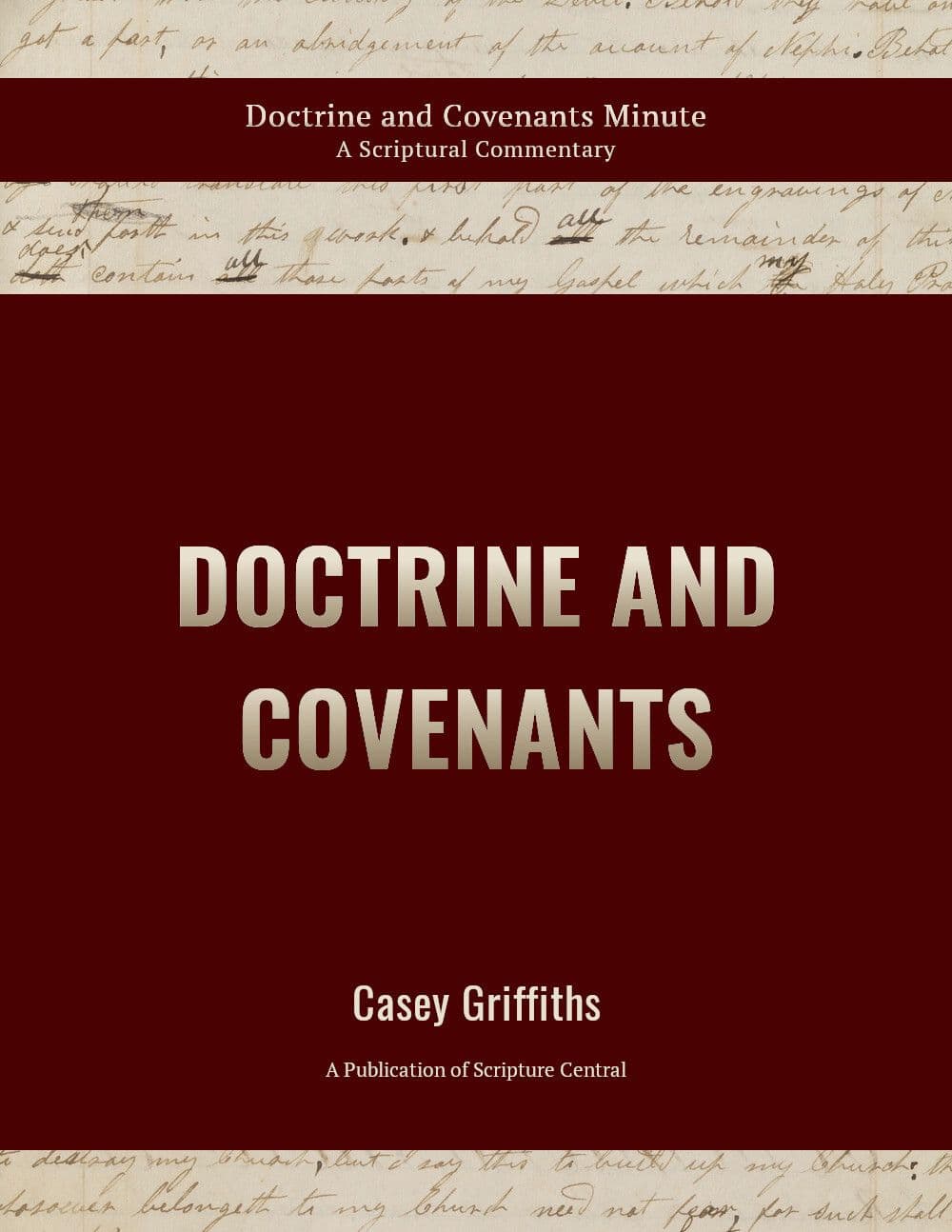Book
144 Chapters

In February 1829, the winter after the challenging season when the original manuscript of the Book of Mormon was lost, Joseph and Emma were visited at their home in Harmony, Pennsylvania, by Joseph’s father, Joseph Sr., and his brother Samuel. Before arriving in Harmony, Joseph Sr. and Samuel stopped at the home of Joseph Knight Sr., a close friend and supporter of the Prophet. Joseph Knight recorded, “I told him [Joseph Smith Sr.] they had traveled far enough [and] I would go with my sleigh and taken them down [to Harmony] tomorrow.”1 The visit was cheering to Joseph and Emma, who were likely still struggling with the loss of their first child and the fallout surrounding the lost manuscript.
During the visit, Joseph Knight provided the young prophet with a little money to purchase paper. Apparently, Joseph had not translated since June 1828, and the simple gift may have allowed him to resume his work with Emma, Samuel, and Martin Harris assisting as scribes. Shortly before he resumed the work of translation, Joseph received the revelation recorded in section 4 for his father. While the revelation was given to Joseph’s father, it has become a universal statement of counsel to all who “embark in the service of God” (D&C 4:2).
While the revelation is a simple and encouraging call to Christian service, it may also have had a significant impact on the coming forth of the Book of Mormon. Beginning in the fall of 1828, a young schoolteacher named Oliver Cowdery began boarding with the Smiths in Palmyra. Oliver became curious about the rumors surrounding the plates and began to inquire of the Smiths for more information. At first Father Smith was reluctant to share, but the revelation given to him here, speaking of “he that thrusteth in his sickle with his might,” may have spurred him to tell Oliver more about the work when he returned to Palmyra. Through his conversations with Father Smith, Oliver became convinced that the Lord was prompting him to reach out to Joseph Smith Jr. to assist in the coming forth of the Book of Mormon.
Historical Context, “Revelation, February 1829 [D&C 4],” p. [1], The Joseph Smith Papers, accessed September 17, 2020, https://www.josephsmithpapers.org/paper-summary/revelation-february-1829-dc-4/1
1 Now behold, a marvelous work is about to come forth among the children of men.
2 Therefore, O ye that embark in the service of God, see that ye serve him with all your heart, might, mind and strength, that ye may stand blameless before God at the last day.
3 Therefore, if ye have desires to serve God ye are called to the work;
4 For behold the field is white already to harvest; and lo, he that thrusteth in his sickle with his might, the same layeth up in store that he perisheth not, but bringeth salvation to his soul;
Though the words in verses 1–4 were initially spoken to Joseph Smith Sr., the wording allows for application to nearly any person who is called by God to assist in the work of the Restoration. The most important requirement, the Lord teaches, is simply a desire to serve God. The Lord lays out the bright promise of the Restoration with an innumerable collection of different men and women around the world ready for the work to come forth.
These words, given in revelation after a period of intense trial for Joseph Smith and his small band of followers, showed the Lord’s perspective on the infancy of the Restoration. In the months that followed, the Lord’s words found fulfillment as a remarkable collection of individuals, including Oliver Cowdery, the Peter and Mary Whitmer family, the brothers Parley and Orson Pratt, Sidney Rigdon, and Edward Partridge, found themselves drawn to the work. This revelation is still being shown to be true in our day as demonstrated by the converts to the word who are gathering from every nation.
5 And faith, hope, charity and love, with an eye single to the glory of God, qualify him for the work.
6 Remember faith, virtue, knowledge, temperance, patience, brotherly kindness, godliness, charity, humility, diligence.
7 Ask, and ye shall receive; knock, and it shall be opened unto you. Amen.
This list of attributes provided by the Lord parallels the qualities of charity that the Apostle Paul described as the most choice of the gifts of the spirit. Not only is charity listed twice among the virtues the Lord seeks in his servants, but the parallels are striking if verses 5–7 are placed alongside Paul’s description of the qualities associated with charity in 1 Corinthians 13:4–7. See, for example, the following list (Paul’s words are in parentheses): faith and hope (believeth all things, beareth all things), an eye single to the glory of God (seeketh not her own), virtue (thinketh no evil, rejoiceth not in iniquity), temperance (is not easily provoked), patience (suffereth long), brotherly kindness (is kind), humility (vaunteth not itself, is not puffed up), and diligence (endureth all things).
The only characteristic in Doctrine and Covenants 4 that does not have a parallel in 1 Corinthians 13 is godliness, and that is likely because the gift of charity allows the receiver to become like Jesus Christ and God, “for we shall see him as he is; that we may have this hope; that we may be purified even as he is pure” (Moroni 7:48). The list even more closely parallels the teachings of the Apostle Peter, where he admonishes, “5 And beside this, giving all diligence, add to your faith virtue; and to virtue knowledge; And to knowledge temperance; and to temperance patience; and to patience godliness; And to godliness brotherly kindness; and to brotherly kindness charity” (1 Peter 1:6-7).
Book
144 Chapters
Items in the BMC Archive are made publicly available for non-commercial, private use. Inclusion within the BMC Archive does not imply endorsement. Items do not represent the official views of The Church of Jesus Christ of Latter-day Saints or of Book of Mormon Central.